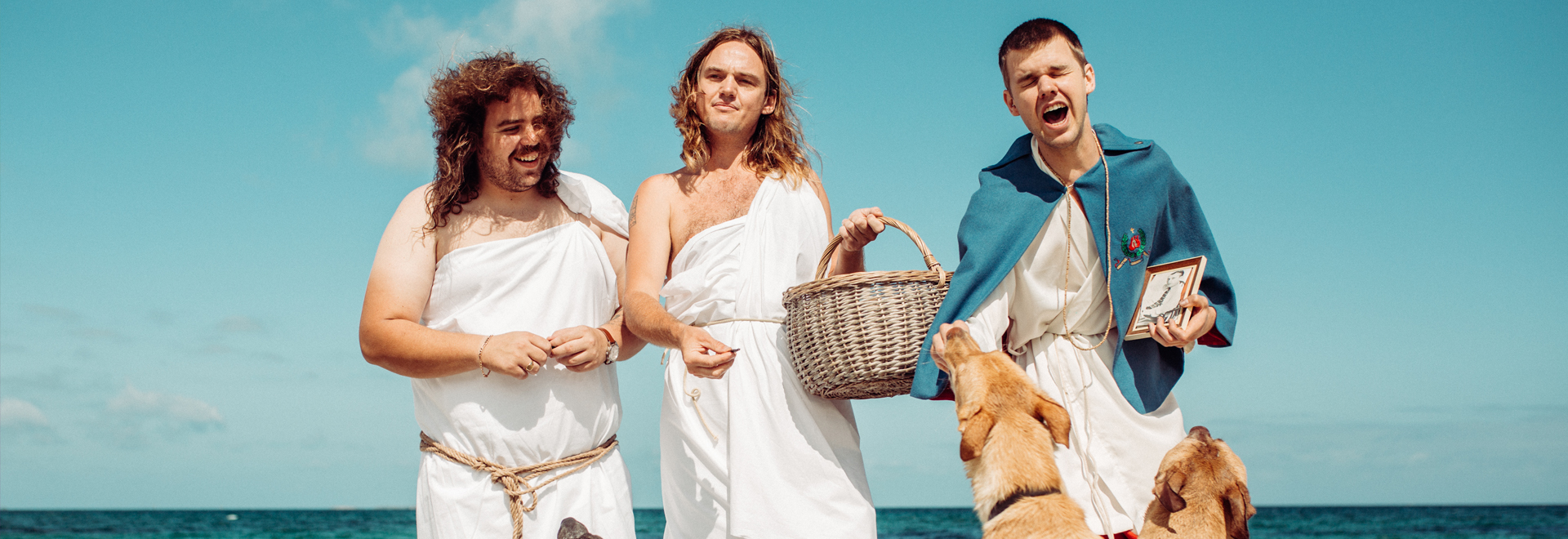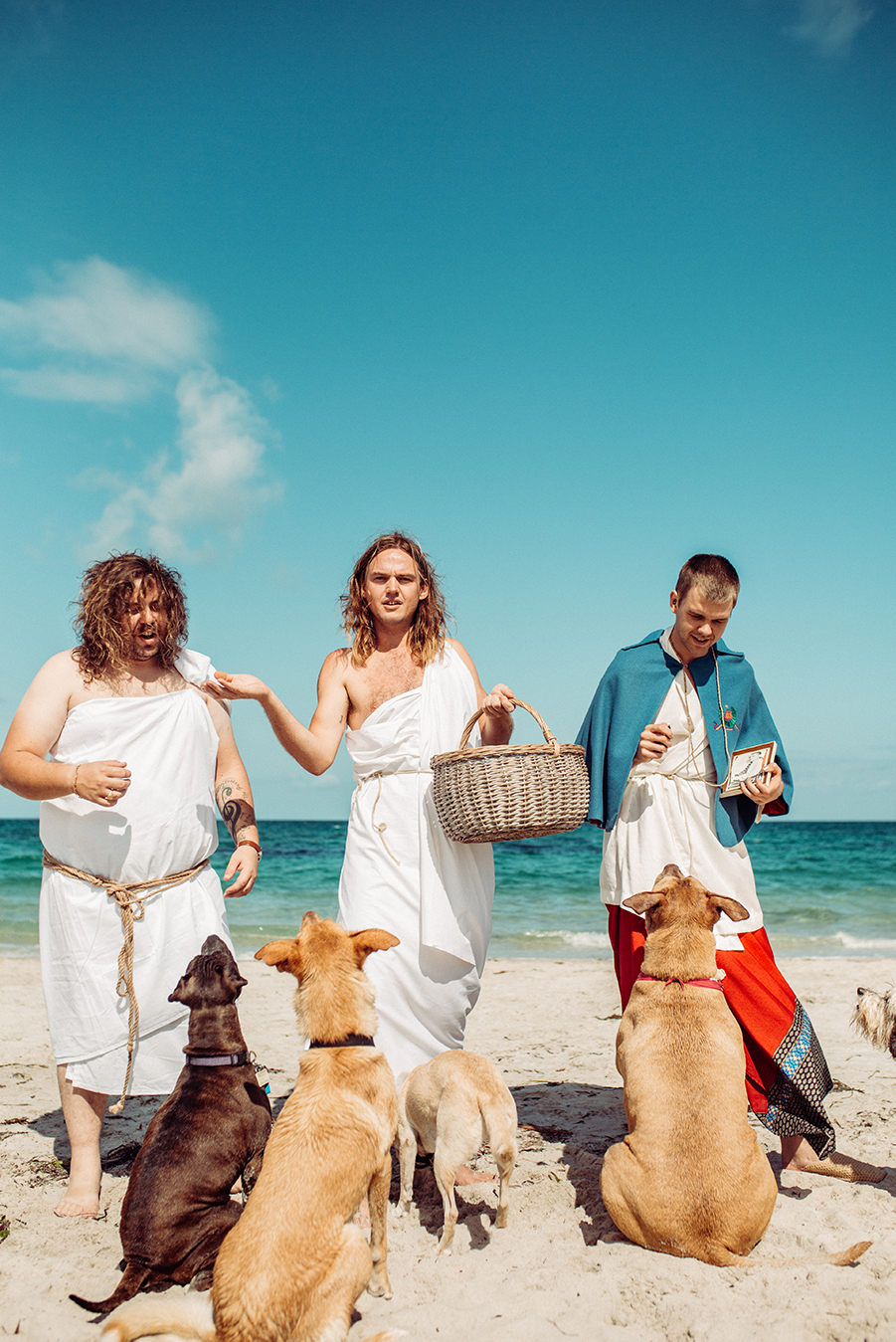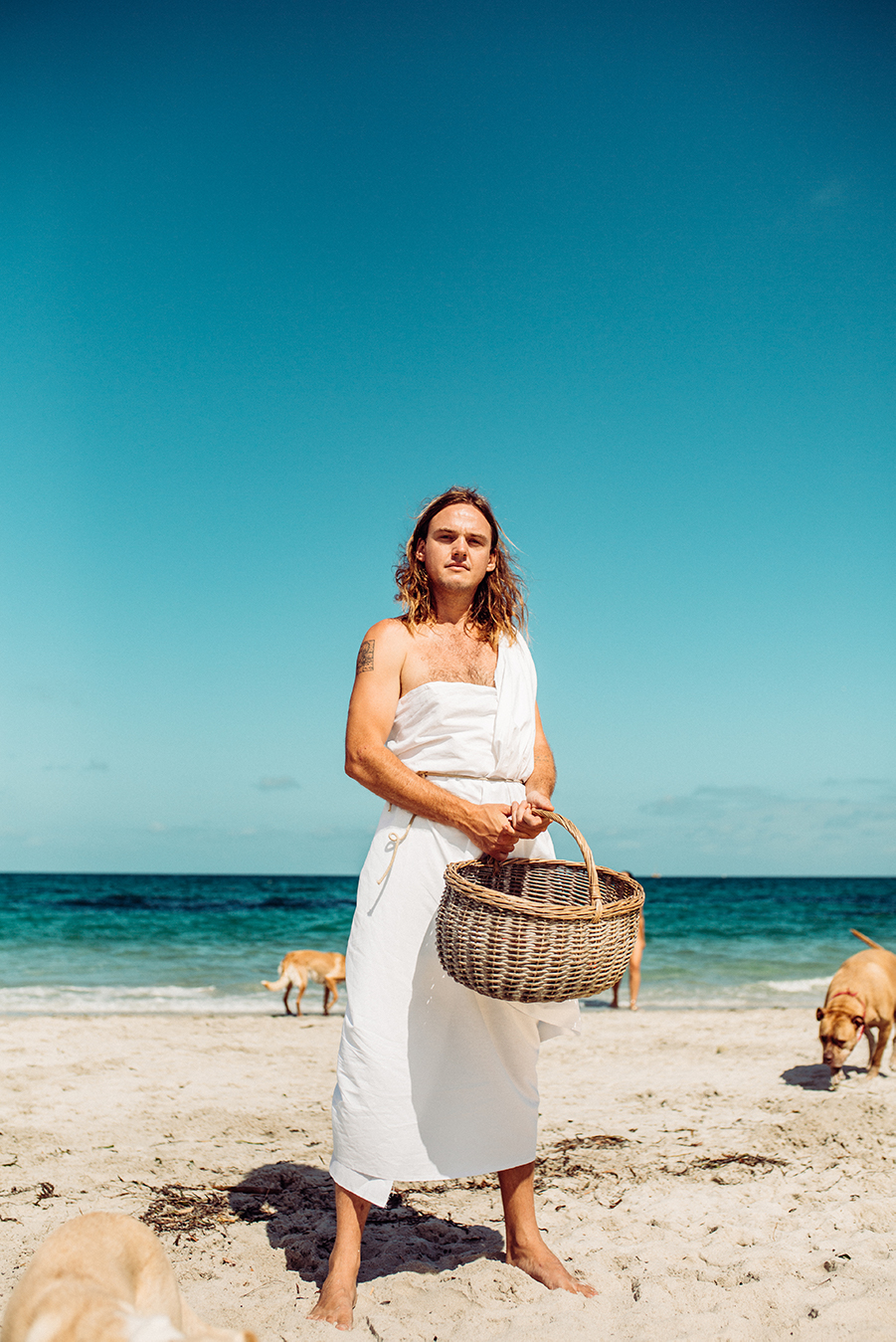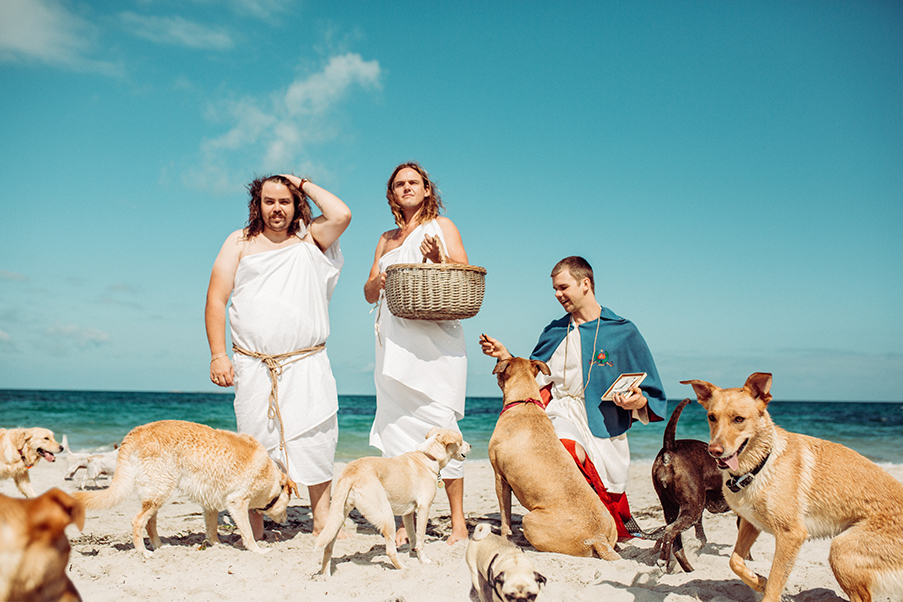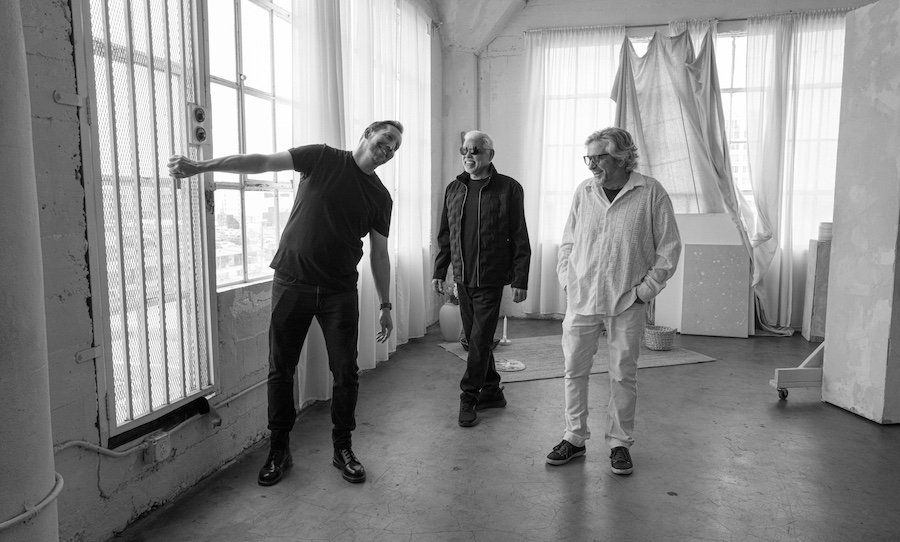HAPPY: So, do you feel that the songs kind of bit more naturally because of that?
PETER: Yeah absolutely. There’s a much bigger band, kind of, vibe on this record.
HAPPY: Are these the same guys who you’ve been touring around with for a while now?
PETER: Yeah, it’s Pete and Dave: The Dog Act. We’ve probably been touring for about three or four years now.
HAPPY: Is there a favourite place that you’ve been to on any of your tours?
PETER: We all loved going to Hobart, it’s got such a different pace to everywhere. Yeah, I’d say it’s everyone’s favourite spot in terms of it being a beautiful, strange location.
HAPPY: Are the Hobart crowds any different to the rest of Australia? What’s the scene like down there?
PETER: It’s good, I reckon the crowds are pretty loose. They have a go, a bit of a yell, a bit of a heckle. A couple of mullets sticking around.
HAPPY: [Laughs] Which is always what you want.
PETER: Yeah, I mean, I definitely won’t say no to it.
HAPPY: [Laughs] So, let’s jump into a bit about the tracks themselves. When I started listening to the album, you gave me a bit of whiplash going from I’m On Fire to Oceans, which is such a great transition there. What was the decision to bookend the album with such soft songs? Where did that come from?
PETER: Well, I guess that was what was my intent on the album, lulling you into a false sense of security, keep you thinking that the album will be like that and then chuck you into the ferocity of Oceans. And yeah, just give you a little bit of whiplash really. When you’re getting berated by songs for 35 minutes, it’s nice to have something soft to ease you out of it.
HAPPY: Like you said, the album’s got a bit more of a gritty feel to it. Did any of the songs particularly stand out for you when it came to different styles or ways of writing that you went about the record?
PETER: Maybe the song Craigieburn, that’s a little bit all over the place, chunked into sections, and it finishes with these long, chunky riffs that just throw you right around. But, yeah, just having a tight and capable band, it was fun to experiment with different processes. Knowing that we could do it, why not give it a try? And it worked, in my opinion.
